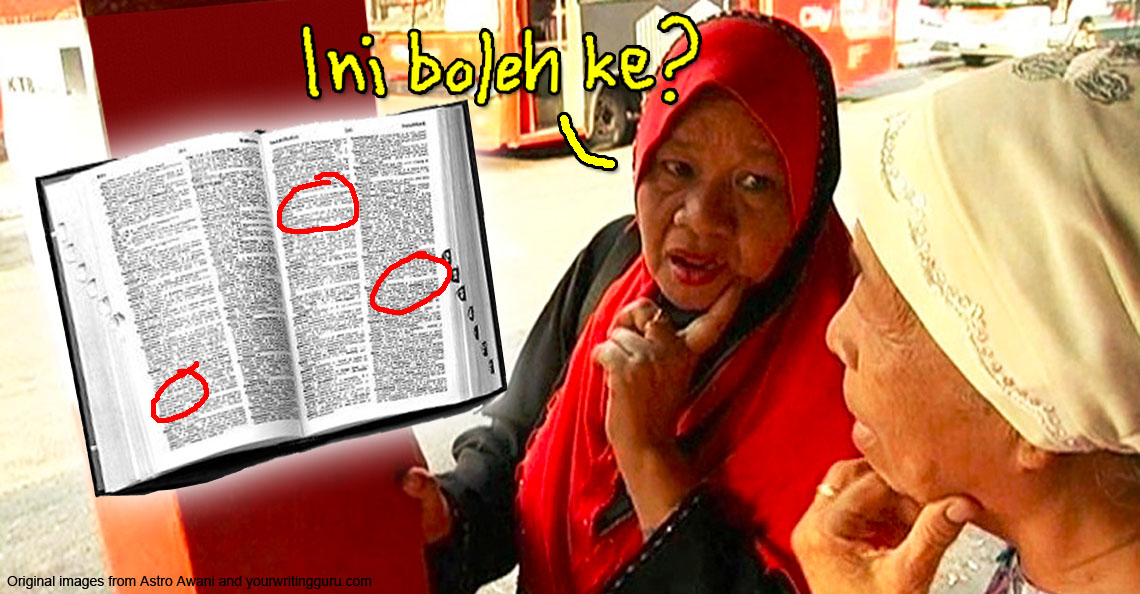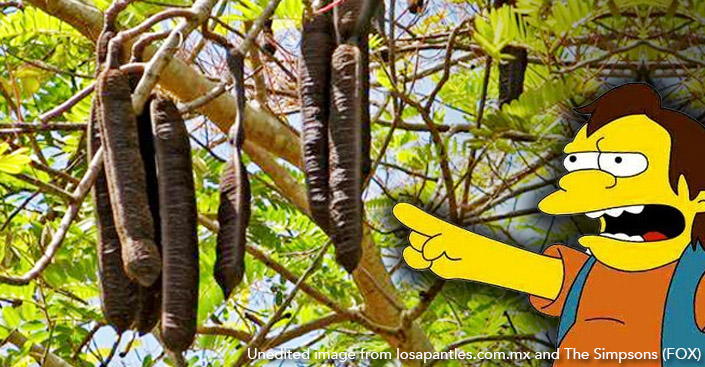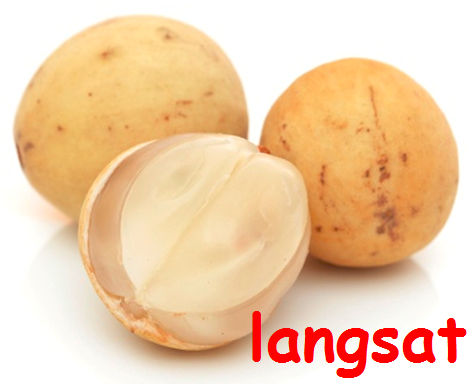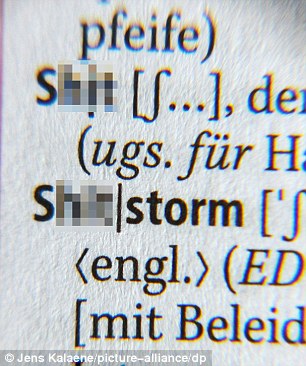Puk****?! How come the Kamus Dewan has swear words?!?

- 660Shares
- Facebook590
- Twitter12
- LinkedIn1
- Email25
- WhatsApp32
*WARNING: Some offensive language will to be used from this point. They will be spelt out in full without censoring. We aim to educate, however if you don’t wanna read it, maybe you can check out other CILISOS articles instead. We apologise to all decent folk in advance.
Malaysia is totally expert in censoring stuff. A lot of things are censored in media, movies, songs, books and so on. One of the things that get chopped are swear words. In newspapers, with those little asterisks after the first letter (eg. s***), and songs (“Let me hear you say this bleep is bananas, B-A-N-A-N-A-S”) and in movies as well.
Still, we might not be too surprised if radio stations or films let one or two swear words pass… But guess what? We found some swear words in the Kamus Dewan Bahasa Melayu! So we thought it would be intriguing to know what swear words are in there and why an institution like the Kamus Dewan (which people generally view as very established, formal, and staid) would publish it. Since we cannot claim to know the BM market very well, we checked with our BM team SOSCILI for some clarification on the words. Here are 7:
1. Pukimak

We start off with one of the worst swear words in the BM language (according to our BM team SOSCILI, this is prolly one of the worst in this list). It is quite universally known (and used) among most Malaysians, even by those who speak other languages. The word translates to vagina in English.
Interestingly, we found not only the main word ‘puki’ in the Kamus Dewan, but variations of its usage, ‘pukimak’ and ‘puki mai’. However, only the root word is published with a definition, which is kemaluan perempuan, while the others are defined as makian (swear word), carut (indecent) and perkataan yang sangat kasar.
Out of all the swear words we found in the dictionary, this was the only one Kamus Dewan labelled sangat kasar, so you realise that the folks at Dewan Bahasa & Pustaka (publisher of the Kamus Dewan) are probably of like mind with SOSCILI – that this word is really, really bad and shouldn’t be ever used in polite society.
2. Haram jadah

Roughly translating to the word bastard in English, the Kamus gives two parts to their definition of ‘haram jadah’. Firstly, it means a child born of out wedlock, secondly, it’s a general curse word, like celaka. So, by the dictionary’s definition you can use it in two contexts. SOSCILI concurs that people often use it as a multi-purpose swear word. It can be used to swear at a person, thing, or a situation. (Such as when you go your favourite restaurant and to your annoyance find out it’s closed!)
Like ‘puki’, this word is specifically labelled a kata makian by Kamus Dewan, aka swear word. For the following entries, the Kamus doesn’t label them as makian any more EXCEPT for the last word. But we’re saving that for last… you’ll see.
3. Pantat

While the other swear words we found had a root word and a few variations of usage, ‘pantat’ has the most, erm, creative variations. Like ‘menjilat pantat’! If you took the words separately and literally, it’s like….eww wuuut?! But as the word ‘pantat’ itself is defined as butt, a-hole, or vagina in Kamus Dewan, the variation ‘menjilat pantat’ is used to refer to the action of sucking up to authority, in other words, a**licking. Maybe if you see it in that context it’s not so strange, because a**licking is quite a normal (albeit rude) term in English.
Extra bit of trivia… Kamus Dewan also has a synonym for ‘pantat’ which is ‘burit’, used as a swear word too.
One SOSCILI writer (from Shah Alam) felt that this word is much worse than ‘puki’, but other writers said it could be less insulting outside Selangor or KL. Elsewhere it usually refers to bekside. Our writers who said that are Malacca and Pahang represent, while our writer from Johor said both equally rude. One of our readers from Sabah told us it means butt over there. “I remember when I accidentally sat on mud and my teacher screamed ‘Pantat ko, kotor suda!’,” he said.
4. Pelir

So while we’re on the subject of body parts, here’s the bad word for male genitalia. There are many words that can be used to describe male genitalia, SOSCILI explained – ‘kemaluan’ is the polite word, while ‘zakar’ is very technical.
‘Pelir’ is one of the nastier words, along with ‘konek’ and ‘kotek’ (alternatively spelt ‘kote’). All 3 can be found in the Kamus. When we checked with the English writers tho, nobody has heard of ‘pelir’. We’re more familiar with ‘kote’. Only the SOSCILI flers know it. But our sales manager told us ‘pelir’ is common among his Bruneian friends.

The thing is, some of these words have different meanings as well. For example, pelir tikus, pelir musang, and pelir anjing are different types of plants, while pelir itik is a type of screw. Plus, as some of ugaiz may have learnt from our previous article that buah kote mamak is also a plant name.
5. Bangsat (and all the other B words)

One thing that stood out when it comes to Malay swear words is so many of them start with the letter B. Well, arguably not all of the following B words can be considered swearing la coz some of them are just slightly mean rather than vulgar. Example – bongok, bangang, babi, bahlul, bedebah, bebal, and the word which made this entry, ‘bangsat’. But yes, ‘bangsat’ is very bad. Don’t use it.
Malaysia has been hearing a lot of this word lately, especially in politics (read here, here, here and here). But what does it mean? According to Kamus Dewan, it can mean a smelly bedbug (huh?!?), a rotten person, or a poor person. SOSCILI writers described it more like bastard as an English equivalent. Or like a person who kena halau away by the masyarakat.
Najib himself used this word, saying that without UMNO, Malays will be bangsat. In response, PKR’s Communications Director Fahmi Fadzil said it was very unbecoming of the PM to use such a word. In that same article, we saw a comment that really win’s the Internet. Langsat.

6. Jahanam

Though there are several definitions in Kamus Dewan, SOSCILI’s interpretation is that ‘jahanam’ is usually used in the context of rosak. For example, a person with horrible attitude who likes to destroy things (not necessarily vandalism only) or if something rosak, ie. handphone rosak, then a person would throw out this word.
Additionally, we found it being used in the context of hell when we Googled the word. On reporting Filipino President Rodrigo Duterte telling Barack Obama to “go to hell”, Utusan Malaysia and Harian Metro translated it as “pergi jahanam” as opposed to neraka.
Anyway, this word doesn’t compare to our next entry which is…
7. Barua

Initially, SOSCILI suggested that we start off with this word, because to them this seriously has to be THE WORST WORD IN THIS LIST. Yep, even worse than ‘puki’! The problem was we weren’t sure how familiar our readers would be with this word. To us it sounds like it could be a place or someone’s hometown, or even something about bears. That makes ‘barua’ and ‘pelir’ two new words that CILISOS has learnt through our research.
Kamus Dewan defines it as a middleman who does dirty work and secondly as a kata makian (swear word). Remember in point 2 we mentioned that Kamus Dewan specifically labelled certain words as makian or sangat kasar? So far only 3 of the 7 words we’ve listed here have this labelling, so we trust that Kamus Dewan was warning people to keep it out their vocabulary.
Walao, why Kamus Dewan dare to print these swear words wan?

At the start of the article, we told y’all that we were curious why an institution with a high-up, long-standing reputation like Kamus Dewan would print words that are considered so vulgar. After all they are THE institution responsible for coordinating the use of Malay language and literature in the whole country here, so one would expect them to speak king’s BM right?
CILISOS contacted the publisher Dewan Bahasa & Pustaka and spoke to their corporate communications department. This is what a representative told us on the phone:
“Tujuan Kamus Dewan menerbitkan perkataan-perkataan kesat adalah sebagai rujukan, supaya masyarakat memahami maksudnya yang tidak elok dan tidak digalakkan menggunanya.” – Representative from Dewan Bahasa & Pustaka’s Corporate Communications
To translate, swear words are printed in the Kamus as a reference so that people know their vulgar meaning and avoid using them. Their purpose is really to educate people.
For the record… the person we spoke to from Kamus Dewan was quite concerned when we told them we wanted to write an article on this. They sorta admonished us for thinking of such an idea and encouraged us instead to write about good, beneficial words in the Kamus that would enrich people’s vocabulary. Honestly speaking, their concern for the rakyat is somewhat endearing.
Anyway hope they don’t feel too bad cos as it turns out, they’re NOT the only ones publishing words your momma would scold you for using. Here are two examples we found in the Kamus Dwibahasa Oxford Fajar, fifth edition:
In fact, many English or other language dictionaries published internationally do it too. (Yes, even f-bombs.) They even keep up with times by adding new swear words, like sh*tstorm.

Like Kamus Dewan, we mean for this article to educate people on why swear words appear in their dictionary, if case any of you have ever wondered about it.
It might not be the best example, but this kinda reminds us of two very different styles of parenting: one where the parent screams “No! Don’t do this! Stop that!” to his/her child, and another where the parent explains *why* a certain act is wrong as to help his/her child make a conscious choice in the future.
Anyway… hope you guys are not too mad at the vulgarity here. Going to wash our mouths with Clorox now.
- 660Shares
- Facebook590
- Twitter12
- LinkedIn1
- Email25
- WhatsApp32

